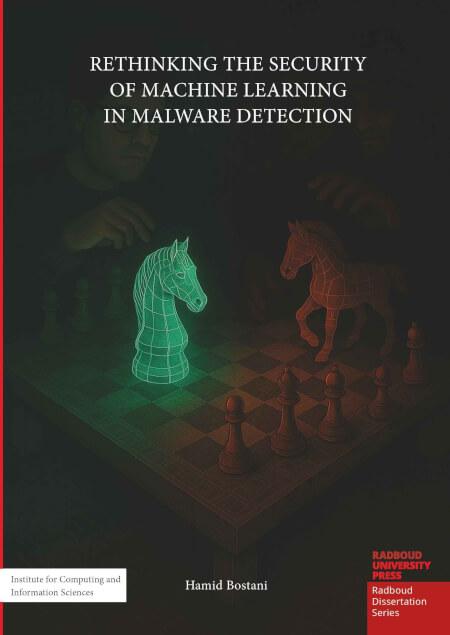Rethinking the Security of Machine Learning in Malware Detection
Keywords:
Adversarial Machine Learning, Malware Detection, Evasion Attacks, Adversarial Robustness, Security of Malware Classifiers, Real-World Adversarial ThreatsSynopsis
This dissertation investigates the adversarial robustness of machine learning (ML)-based malware detection systems, focusing on practical limitations. While ML has advanced malware detection, it remains vulnerable to adversarial manipulations that enable malicious software to evade malware classifiers. This work rethinks both attack and defense strategies from a practical perspective, aiming to bridge the gap between theoretical approaches and real-world applicability. On the offensive side, it introduces a black-box evasion attack that generates query-efficient adversarial malware through realistic code injections, preserving malicious functionality while evading detection. On the defensive side, the thesis explores methods to efficiently uncover and mitigate vulnerabilities in malware classifiers directly in the feature space and improves generalization by addressing spurious correlations to ensure features better reflect actual malicious behavior. Additionally, the dissertation presents a unified framework for adversarial training (AT), enabling exploration of how intertwined factors—such as feature representations and model flexibility—influence its effectiveness. By integrating these aspects, this work proposes more robust and realistic defense strategies. Overall, the research offers a practical roadmap to enhance ML-based malware detection security, emphasizing the need for realistic threat models and comprehensive defenses, and outlining future directions for building resilient systems against evolving adversarial malware threats.

Published
Series
Categories
License

This work is licensed under a Creative Commons Attribution-NonCommercial-NoDerivatives 4.0 International License.


